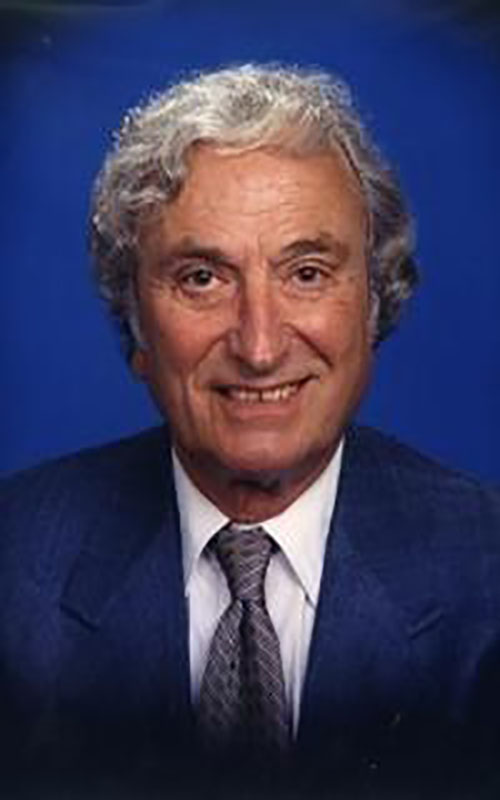Dean Jack Otis Endowed Lecture Series
Dr. Jack Otis actively worked to build peace and hope for individuals, families, society, and the earth. He was committed to social justice and living a life of meaning. Dr. Jack Otis created the Social Problem and Social Policy Lecture Series to bring attention to current social problems and inspire University students and faculty to develop solutions to these problems. His entire life was dedicated to seeking out social problems and helping others. In his words, “The meaning of my life is whether I have added to the meaning of another’s.”

Dr. Jack Otis
“…too much sanity may be madness
and the maddest of all,
to see life as it is
and not as it should be.”
– Man of La Mancha
Jack was born in Brooklyn, New York, where his immigrant father, Abraham Osipowitz, and his mother, Esther Goldberg, owned a delicatessen. His parents immigrated to the United States from Antipolia, Poland.
He served as a combat engineer in Japan during World War II. He attended Brooklyn College and received advanced degrees from the University of Illinois, Urbana. Jack chose social work as a profession as he felt it was the best way he could directly help people, and, therefore, his first emphasis was clinical social work.
After more experience, Jack realized that there were broad problems that needed attention if a person wanted to do good work in the world. This fostered Jack’s interest in broader social problems and social policies that would provide help to a larger number of people. He served as a consultant from 1961 to 1965 to the President’s Committee on Juvenile Delinquency and Youth Crime, chaired by U.S. Attorney General Robert F. Kennedy. He was deputy director of the Office of Juvenile Delinquency and Youth Development during the Kennedy administration.
Jack joined the faculty at the School of Social Work as its third dean in 1965. He was dean from 1965 to 1977, and professor from 1978 to 1993. During his twenty-eight years at The University, he transformed the School of Social Work from a small fledgling graduate M.S.S.W. program to a nationally-recognized educational institution offering bachelors, masters, and Ph.D. programs, as well as the Center for Social Work Research, Learning Resource Center, and the Continuing Education Center for Professional Development. Jack worked effectively with The University and with the Council on Social Work Education to build academic programs at every level that exceeded existing national standards.
Dr. Otis was instrumental in establishing national standards for the accreditation of undergraduate social work education. For several years, he was a site visitor and member of the Council on Social Work Education Commission on Accreditation. His publications include “Business Civilization and The Family” and “Corporate Society and Education.” His definition of child labor is published in the “Encyclopedia of Social Work.” Reviewing his accomplishments, Dean Barbara White said, “His intellect, creative vision, and leadership created the foundation for future achievement of the School of Social Work.”
When asked his opinion of what America needed to do to continue to be great, Dr. Otis replied,
“America needs to live up to its early ideals that inspired so many people to come to this country who were oppressed and poverty stricken and came to live a better life — that, to me is the meaning we should continue to have and be a model for what freedom means by not only how we treat people from other countries but also how we treat our own people.”
Dean White recalled that “Dr. Otis continued to support the school and its students up to the time of his passing. His contributions will always be recognized and his memory cherished.” In 2007, Dean Otis created the school’s Social Problem and Social Policy Lecture series, which has featured such speakers as Mark A. Potok, director of the Southern Poverty Law Center’s Intelligence Project. Potok’s talk on hate crimes drew a large crowd to The University as did the inaugural lecture on drug legalization by Jack A. Cole of Law Enforcement Against Prohibition. Prior to the lecture series, Dr. Otis sponsored student policy paper awards.
Dr. Otis, died at his family’s home in Nevada City, California, on January 5, 2010, at the age of eight-six. After retiring in 1993, Jack and his wife Patty traveled extensively, visiting China, Tibet, Thailand, Bali, Argentina, Russia, Norway, and many other countries.
This story was prepared by Dan Boehl using a memorial prepared by a special committee consisting of Professors Clayton Shorkey (chair), Diana DiNitto, and James Schwab.
